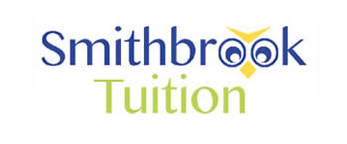Dyslexia is often seen as a disadvantage, something to be ashamed of, something that can be changed or cured!
This is simply not the case, dyslexia is just a term identifying that someones brain works in a particular way. It is only the constructs of our society and educational system that makes people with dyslexia feel like they are stupid or ill.
It is sad that children and adults are made to feel this way causing them to hide their dyslexia, so that they then do not get the help they require.
Kenny Logan, a very successful Scottish rugby player, recently went on ITV’s ‘Lorraine’ to talk about just how negatively his undiagnosed and unacknowledged dyslexia affected his life and his self-worth.
In the video they discuss how he used to come home from school and punch himself in the head because he thought he was stupid. His misunderstanding about his own brain haunted him through most of his career and personal life.
At Smithbrook Tuition we have lots of experience with dyslexia, working with the child to teach them in a way their brain can understand. We help them see that dyslexia is not a bad thing, but something to accept whilst working out a way to achieve excellence in their education.
Over many years we have come to realise just how important it is to identify and acknowledge that a child or person is dyslexic and here are some of the reasons why:
- Dyslexic brains are wired differently so all information, written and spoken, is processed in a different way which creates different strengths and weaknesses. Therefore if dyslexia is recognised early enough, the correct support can be given to improve the weak areas of leaning and enhance their persons skills.
- A simple diagnosis can help them persevere with their learning and careers, as they have a reason as to why they think and learn differently from the general population and establish that they are not more unintelligent than their peers. Research by a global charity Made By Dyslexia, created by successful dyslexics, found that four out of five people with a dyslexia diagnosis felt more encouraged.
- Unacknowled dyslexia or any learning difficulties can lead to anxiety and low self-esteem issues. We see this at Smithbrook Tuition all the time as children cannot work out why they are different from their classmates. Mental health plays a huge role in a child’s eductaion and they will become disheartened and disengaged with the education process if they are suffering with anxiety or loss of confidence.
Dyslexia learning techniques that inspire confidence
One of the most common areas of feedback we receive from students (and their parents) is that after just a few sessions their self-esteem and confidence in their own learning ability has dramatically improved leading to greater success at school.
We find that identifying if a child has dyslexia, or any educational challenges, helps all the teachers at Smithbrook Tuition find new personalised ways for each child to enhance their strengths and improve their weaknesses.
If you think your child might be struggling with dyslexia and is not getting the support, help or advice they need please get in touch for a chat with Sue to see how Smithbrook Tuition can fill in the gaps of their education.

